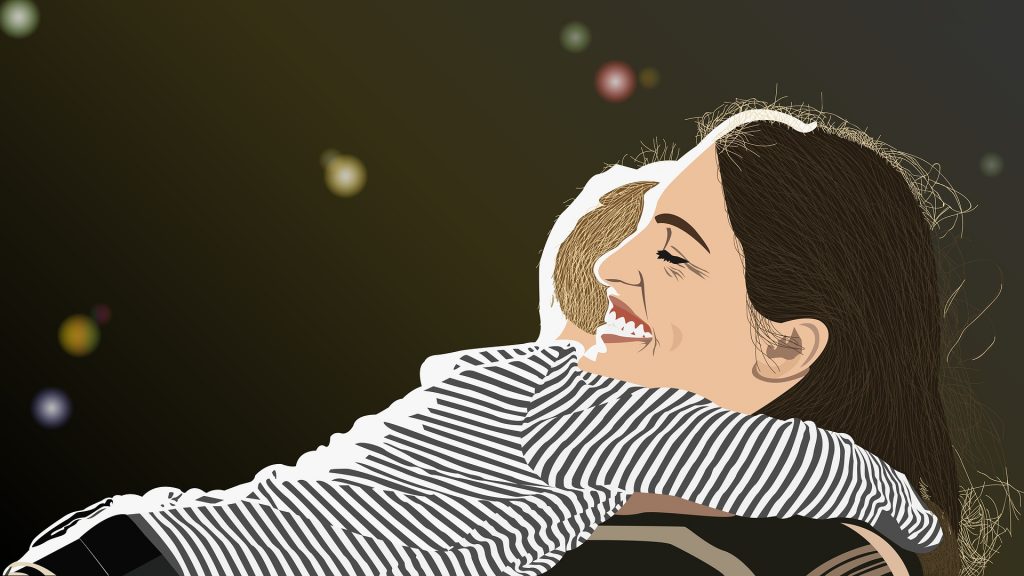
Informal care, or omaishoitajuus, is when a person looks after a relative in need of special care. The most common situation is when a person ages to the point of not being able to take care of themselves anymore, and the spouse or other loved one takes the responsibility of being the caregiver instead of putting them into an elderly home.
The area which is often overlooked is the 15% that take care of children. These include cases of mentally handicapped or otherwise disabled children. There are also the rarer, but equally important cases of children with serious illnesses, for example cancer. People often forget that when being caregiver of one’s child, usually the ”job” lasts for the rest of their lives, not only a few years like in many cases of being a caregiver for elderly. Now I’ll go on to introduce our imaginary example family, whose daily life we’ll be also exploring in the upcoming blogposts.
Our imaginary informal care family
Joonatan is a 5-year-old boy. He lives in Vantaa with his mother, Maria. Joonatan is a very active and curious child who likes to explore his surroundings and asks a lot of questions. There is one thing that separates him from a normal child: he has leukemia.
Maria acts as Joonatan’s caregiver. She is a practical nurse but isn’t currently working because she is staying home taking care of her son. Joonatan’s parents have divorced, but are still in contact on things that affect their son. His father lives in Kerava and Joonatan visits him every other weekend.
Joonatan’s life mainly revolves around medical visits and can’t go to kindergarten or really be in contact with the outside world. They need to go to the hospital weekly, and sometimes the visits can take multiple days.
Maria’s family lives in northern Finland, so their support group isn’t very big. Joonatan’s godmother, who lives close-by is often a big help to the family. Maria is also a part of caregiver’s support group, which provides her with peer support and a safety net.
You’re warmly welcomed to follow Joonatan’s and Maria’s daily life in the upcoming blogposts, to learn about struggles people like them are faced with and how perhaps they see the world.
-Masir
Suurin osa Showcasen blogeista on toteutettu osana Laurean opintojaksoja. Koko koulutustarjontaamme voi tutustua nettisivuillamme. Tarjoamme kymmenien tutkintoon johtavien koulutuksien lisäksi myös paljon täydennys- ja erikoistumiskoulutuksia sekä yksittäisiä opintojaksoja avoimen AMK:n kautta!
I am very interested to hear and learn more about informal care and the struggles Joonatan and Maria face in their everyday life. I enjoyed your practical approach to informal care. I think it is interesting that you chose more rare case to reflect on, as this case belongs to the 15%. It is very important to raise awareness of these issues. Also, your blog post was easy and nice to read! 🙂
Nice text, easy to read. It was interesting to learn that only such a small part of the informal carers take care of children. Just one thing I´d like to point out: handicapped is an outdated (and even offensive) term when describing a person with a disability. Otherwise, great introduction to the imaginary family we´ll be following! 😊
Thank you so much for calling me out on that. It’s important to point out whenever someone uses an outdated phrase, even if they don’t mean anything by it. Thanks for reading our blog!
Hi Masir!
You have explained very well and clearly and not in too many words what informal care is. When we think of informal care, probably many think it has to do with caring for the elderly, and that’s how I thought about it also. It is often forgotten or not too much thought that informal care for children also exists and that this is indeed in many cases a longer path that will last for many many years.
Your group has come up with a very realistic and clear example case about Joonatan and his mother Maria. This gives the reader an idea of who the story is about.
With great interest, I will read the rest of your blogs! Thanks 🙂